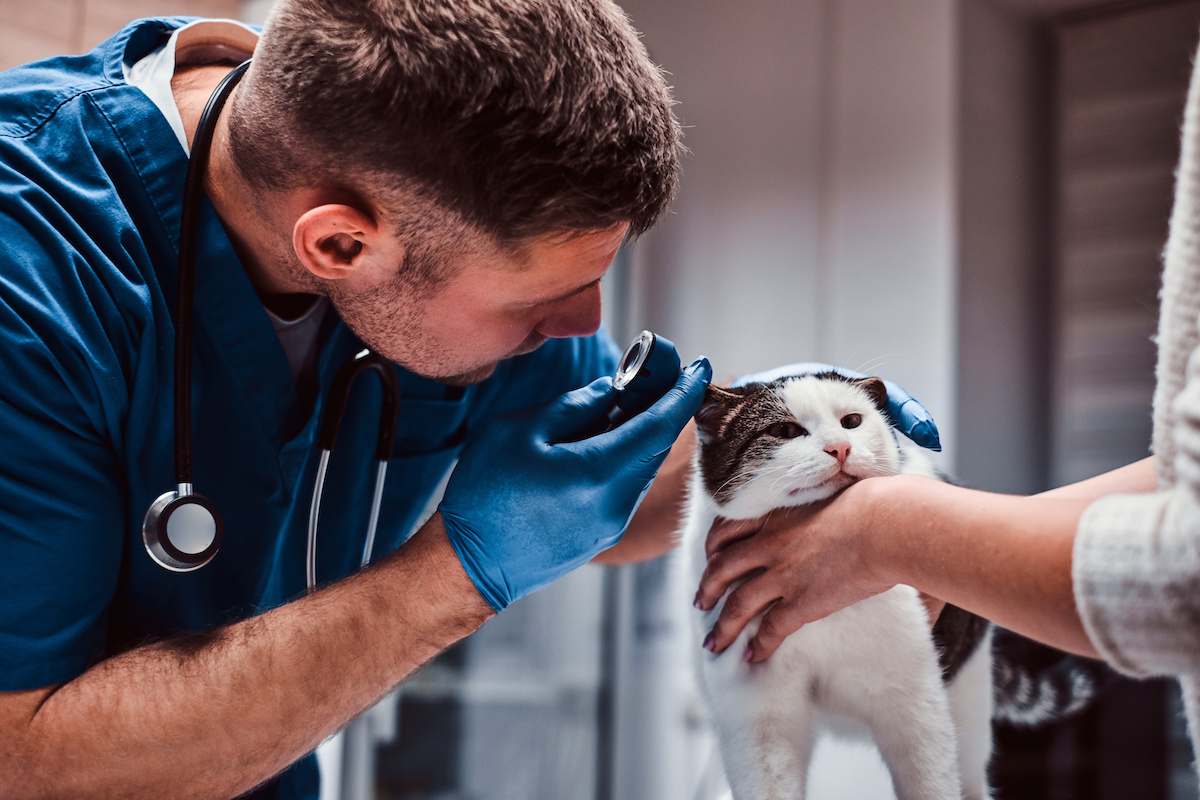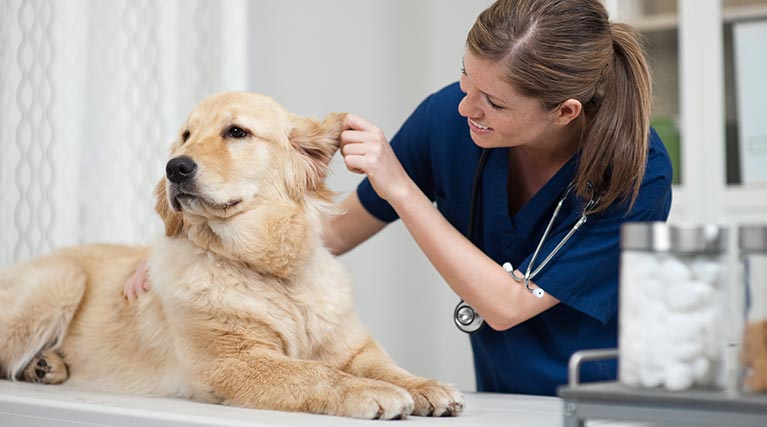Vaccination Guidelines From Your Relied On Vet
Vaccination standards given by your relied on veterinarian play an important role in guarding your family pet's health and wellness and well-being. Core vaccinations are essential for all animals, while non-core vaccinations can be tailored to environmental direct exposures and particular lifestyles. Recognizing the nuances of inoculation schedules, which start as early as six to 8 weeks, is vital for ideal defense. Additionally, addressing typical misunderstandings bordering vaccines can better improve pet owners' confidence in these safety nets. As we discover these vital facets, it ends up being increasingly clear why routine consultations with your veterinarian are essential for notified decision-making.

Significance of Inoculations
Inoculations play a crucial function in securing family pets versus a series of preventable conditions. By boosting the immune system to acknowledge and fight details microorganisms, injections substantially decrease the incidence of infectious diseases that can impact a pet's health and longevity. Not only do inoculations safeguard individual pets, but they additionally add to herd resistance, therefore decreasing the overall frequency of conditions in the pet populace.
Timely inoculations assist to reduce the spread of conditions such as rabies, parvovirus, and distemper, which can have serious consequences for both humans and family pets. In addition, vaccinations are usually a requirement for boarding facilities, brushing solutions, and canine parks, making them essential for those who desire to socialize their pets.

Core Vaccines for Animals
While the specific vaccination demands of pet dogs can vary based upon individual elements, core injections are globally recommended to shield versus the most usual and major conditions (Pet Health Checkup). Core vaccinations are those deemed necessary for all pet dogs, regardless of their way of living or geographic location, as they protect against possibly fatal and extremely contagious health problems
For pet dogs, the core vaccinations include those for canine distemper, parvovirus, adenovirus (hepatitis), and rabies. Canine distemper is a viral condition that influences the breathing, intestinal, and nerves. Parvovirus is recognized for triggering extreme stomach illness, particularly in pups. Adenovirus can lead to liver disease, while rabies is a zoonotic condition that postures a threat to both pet dogs and human beings.
In felines, core injections encompass feline panleukopenia, feline calicivirus, feline herpesvirus (rhinotracheitis), and rabies. Feline panleukopenia is a very transmittable viral disease that affects the immune system and intestinal tracts. Calicivirus and herpesvirus are significant factors to upper breathing infections in cats, while rabies remains an essential concern for public health.
Talk to your vet to ensure your pet dogs receive their core inoculations on schedule.
Non-Core Vaccines Explained
Non-core vaccines are tailored to deal with certain dangers related to a pet's way of life, atmosphere, and direct exposure to certain diseases. Unlike core vaccinations, which are globally advised for all pets, non-core injections are thought about based upon private circumstances. These vaccines are particularly essential for pet dogs that may encounter one-of-a-kind virus due to their geographical area, traveling behaviors, or tasks.
Instances of non-core vaccines consist of those for Bordetella bronchiseptica, which is linked to kennel coughing, and Lyme disease, brought on by Website ticks. Family pets that frequently connect with other pets, such as those in boarding facilities, pet parks, or brushing environments, might benefit from Bordetella inoculation. Similarly, if you stay in an area where Lyme condition prevails, immunizing against this illness can be a sensible choice for outdoor-loving pets.
Other non-core injections might consist of those for leptospirosis, canine influenza, and feline leukemia, relying on the specific danger variables present. It is necessary to have an extensive conversation with your vet regarding your pet dog's way of living and the potential need for these injections, ensuring a customized vaccination technique that ideal protects your fuzzy close friend.
Vaccination Schedule Summary

As pets mature, it is very important to adhere to the suggested booster inoculations. Vet Enterprise. For grown-up pets, core vaccines are generally offered every one to three years, relying on the particular vaccine and neighborhood policies. Non-core vaccines might be recommended based upon way of life factors and local disease occurrence, necessitating a customized approach
Normal veterinary examinations are essential for upgrading vaccination timetables. Your veterinarian can give assistance on the most proper immunizations for your family pet, considering age, health standing, and environmental dangers. By remaining proactive and notified, pet owners can guarantee their hairy companions obtain prompt and efficient vaccinations, consequently safeguarding their health and wellness and health throughout their lives.
Common Misconceptions Concerning Injections
Misconceptions regarding pet dog vaccinations can cause complication and hesitation amongst family pet proprietors concerning the booster shot process. One prevalent misconception is that vaccinations are unneeded for interior pet dogs. While it holds true that indoor pets More Help face lower dangers, they are not totally immune to illness, as microorganisms can be presented with different ways, consisting of human garments and various other family pets.
One more misconception is that vaccines can cause the illness they intend to avoid. In truth, most vaccines contain suspended or undermined microorganisms, which can not trigger illness in healthy animals. Some pet proprietors additionally think that their pet dogs must not be immunized if they are already healthy; nonetheless, inoculations are a positive step that helps prevent the start of illness.
In addition, lots of animal owners are afraid that vaccinations will bring about long-term health and wellness problems. While adverse effects can happen, they are temporary and commonly moderate. The benefits of inoculation-- protecting pets from possibly deadly conditions-- far surpass the dangers. Understanding these usual myths is crucial for liable family pet ownership and making sure the health and wellness of your furry buddies. Constantly consult your veterinarian for exact information click for source customized to your pet's certain demands.
Conclusion
In summary, adherence to inoculation standards is essential for making sure the wellness and long life of pets. Core injections give important security versus significant conditions, while non-core injections attend to certain dangers based on specific way of livings. Developing a comprehensive vaccination schedule, combined with regular veterinary exams, facilitates optimal health management. Resolving usual misconceptions bordering inoculations even more strengthens the significance of informed decision-making in pet treatment. Inevitably, a positive method to vaccinations is vital for maintaining pet dog health.
Not just do vaccinations protect specific animals, yet they likewise contribute to herd resistance, thereby lowering the general prevalence of conditions in the family pet population.
Misconceptions concerning animal vaccinations can lead to complication and hesitation among pet dog proprietors concerning the booster shot process. While it's real that interior animals encounter lower threats, they are not completely immune to illness, as pathogens can be introduced via various methods, including human garments and various other pets.
Some pet dog owners likewise think that their pets ought to not be immunized if they are already healthy; nevertheless, inoculations are a proactive step that aids avoid the beginning of illness.
The benefits of inoculation-- securing family pets from possibly deadly illness-- much surpass the threats.